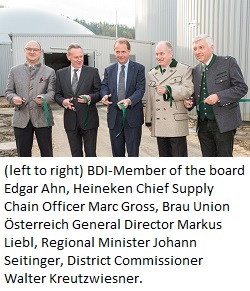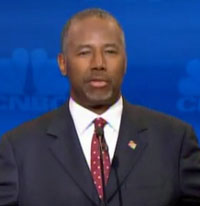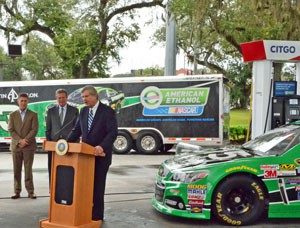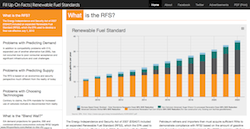Fuels America is launching a new seven-figure TV and digital ad campaign today urging President Obama to make a choice between the oils industry and renewable fuels for the future.
 The campaign depicts President Obama’s choice of who to listen to when it comes to the Renewable Fuel Standard: his own experts who have repeatedly shown that ethanol and renewable fuel is dramatically reducing carbon emissions, or the oil industry, which has spent decades covering up the science and facts on both renewable fuel and climate science.
The campaign depicts President Obama’s choice of who to listen to when it comes to the Renewable Fuel Standard: his own experts who have repeatedly shown that ethanol and renewable fuel is dramatically reducing carbon emissions, or the oil industry, which has spent decades covering up the science and facts on both renewable fuel and climate science.
“President Obama’s choice on the Renewable Fuel Standard is clear. He can choose to listen to Big Oil’s distortions and lies, or he can listen to his own scientists who have shown that the RFS significantly reduces greenhouse gas emissions,” said Brent Erickson, Executive Vice President at BIO.
“The truth is that slashing the amount of clean, domestic renewable fuel in our motor fuel supply would dramatically increase pollution and carbon emissions, while strengthening the RFS and building on the progress of the past 10 years would help in our efforts to combat climate change,” said National Corn Growers Association president Chip Bowling, a Maryland farmer.
The 30-second TV spot and digital ads are both airing in the Beltway. The campaign follows aggressive attempts by oil industry-funded special interest groups API and Smarter Fuel Future to discredit the climate benefits of renewable fuel—and as usual, their claims are false and wholly unsupported.
Listen to Erickson and Bowling announce the new campaign here: New Fuels America campaign










